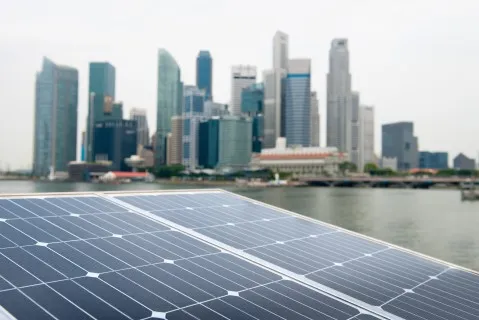
How deeply ensnared are the Chinese firms in Thailand's solar market?
The country's capacity increase is projected to be 6 times higher.
Unstoppably expanding Chinese firms could not resist setting foot in Thailand’s tempting solar market. Thailand is making aggressive steps to be the region’s mega solar power hub and they are dead set on making this happen by 2036.
“Looking into the future, Thailand expects to increase its solar capacity to 6,000MW by 2036, which would account for 9% of total electricity generation and help provide electricity for 3 million households,” notes Fernando Vidaurri from Dezan Shira & Associates. “The continuous interest of the Thai government to develop this industry and to provide subsidies presents investment opportunities in a sector that has barely been developed by its neighbors.”
Enter the Chinese firms
Thailand has particularly piqued the interest of Chinese solar energy developers and manufacturers. Georgina Hayden, senior energy & infrastructure analyst at BMI Research, says that these firms have been looking to offset the overcapacity in their domestic market and seeking out alternative growth opportunities.
"We expect those companies who are focussing heavily on expanding beyond their domestic market to outperform others with a smaller international footprint. We previously highlighted in our analysis that the Thai solar market is becoming increasingly attractive to Chinese solar companies," Hayden says.
Yingli Green Energy is among those who were lured in when it announced in January 2016 that it will establish a 300MW photovoltaic (PV) panel production plant in Rayong, Thailand in conjunction with Thai company, Demeter Corporation.
A spokesperson from Yingli says that Thailand boasts favorable geographical location whose products and markets could cover southeast Asia, and its plentiful labor force provides continuous support for manufacturing factories. In addition, the government of Thailand encourages and supports the application of solar products as well as industrial investment, which brings a friendly environment for the solar companies’ development.
The spokesperson also adds that the government has been supportive in accommodating investors. “If a company gets a promotion license as a foreign company from the Board of Investment of Thailand, it will be granted tax benefits such as free enterprise income tax for the first eight years and half for the following five years, free tariffs or a reduction in tariffs imposed on imported equipment and raw materials used for the exported goods” he says.
However, Dr. Sopitsuda Tongsopit from Energy Research Institute, Chulalongkorn University, warns that the current market for solar power in Thailand is non-competitive and can limit the role of the private sector. “The lack of competition in Thailand’s solar market has meant a high risk environment for investors and a lack of incentives for new entrepreneurs to initiate new business models for broader access,” she says.













 Advertise
Advertise











